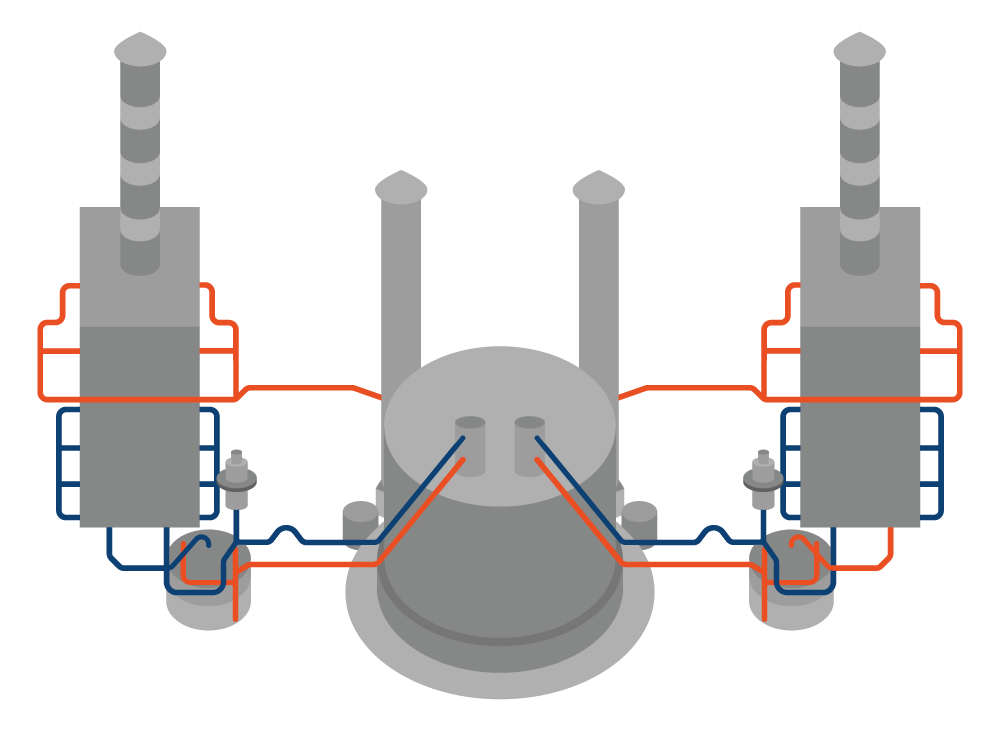Coordinated by the CEA, the ESFR-SIMPLE project brings together 16 partners that will collaborate over the course of 48 months to demonstrate the ability of nuclear reactors to meet societal needs.
Integrating future nuclear reactors into European energy systems requires evidence that the reactors in question are safe and meet future societal needs. In line with the ESNII roadmap, the ESFR-SIMPLE project aims to improve the safety and economic aspects of the European Sodium Fast Reactor (ESFR) through the implementation of innovative technologies.
More specifically, the project partners will develop a novel Small Modular Reactor (SMR) version of the ESFR. This ESFR-SMR will be safer, simpler, and more economic while providing an option for flexible integration into the electrical grid as well as energy storage. In addition, concepts and measures developed in the ESFR-SMART project will be studied to eliminate several safety-critical scenarios, evaluated in experiments and quantified by modelling analysis.
Research areas
The project aims to lay solid foundations in three research areas
Objectives
To design a simpler, more flexible and safer reactor, the project has set five objectives


